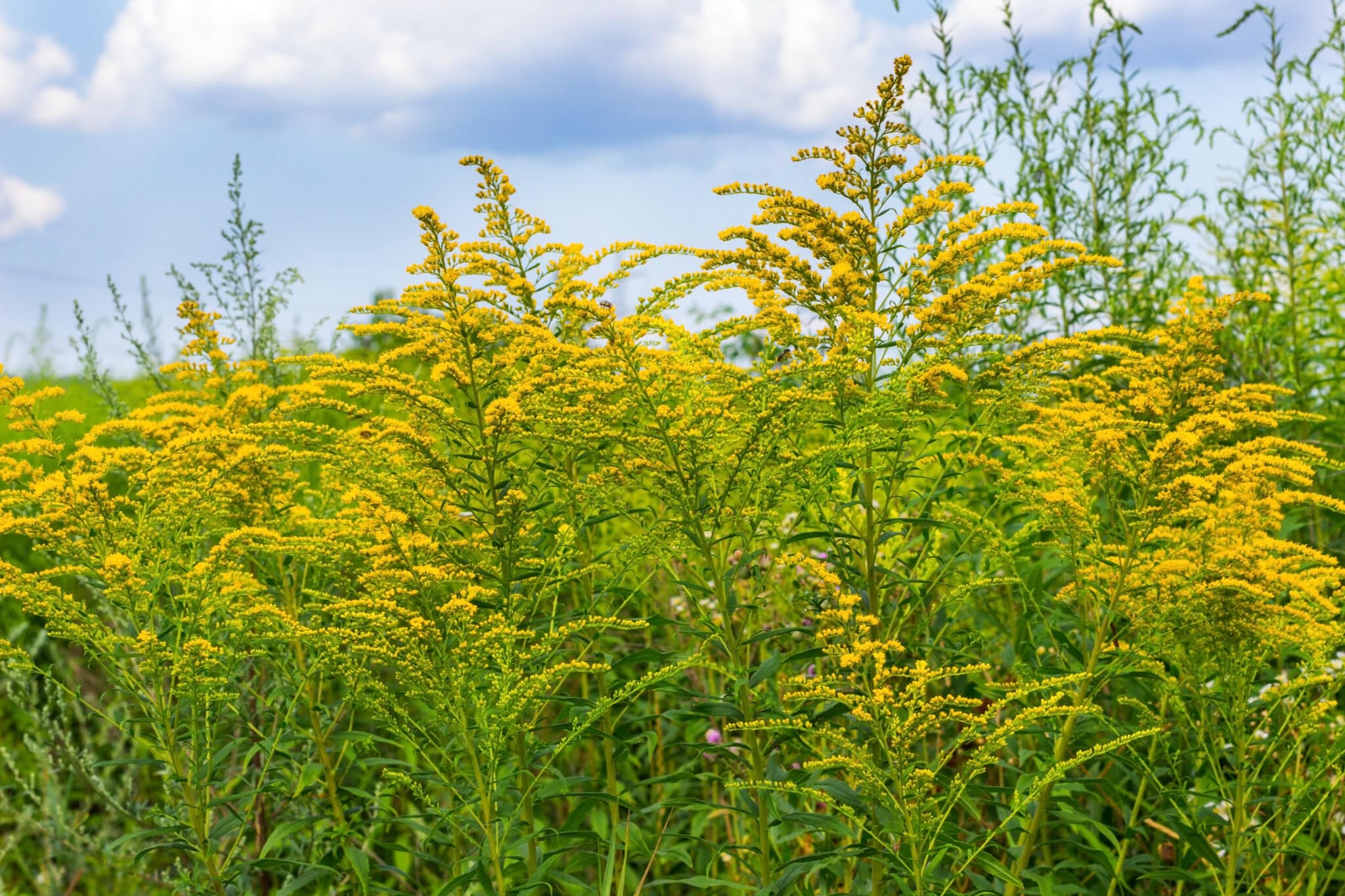Ragweed pollen allergies affect many Texans during the fall season. Fall allergies can cause congestion, fatigue, and other symptoms affecting your well-being. Working with a local allergist in Houston and understanding the effects of ragweed pollen can help better prepare you for the fall season.
What is Ragweed?
Ragweed is a common weedy plant found in Texas and thrives in hot, arid climates in open landscapes. Although there are many species of ragweed, the most common varieties of ragweed to cause allergy flare-ups are Ambrosia artemisiifolia, also known as short or common ragweed, and Ambrosia trifida, also known as giant ragweed. Short ragweed can grow up to four feet tall, and giant ragweed can grow up to 15 feet tall.
Species of ragweed are found in vast grassy areas or rural environments but still affect more urban areas due to the pollen spread. This yellow flowering plant can produce up to a billion spores in one season and travel rapidly through the Texas wind. Ragweed pollen season ranges from mid-August to November. Pollen from the ragweed plant is the number one cause of hay fever during the fall season.
Ragweed Allergy Symptoms
Pollen from ragweed can trigger allergy flare-ups for those with a sensitivity to this allergen. Allergy symptoms from ragweed can cause a variety of symptoms from mild to severe, including:
- Sneezing
- Stuffy or running nose
- Itchy nose and throat
- Itchy or puffy eyes
- Mucus and congestion
Ragweed pollen can also cause those with asthma to have coughing or have difficulty breathing. It’s important to consult with your local allergist if symptoms of ragweed pollen allergies are affecting your well-being.
How to Mitigate Ragweed Pollen Allergies
It’s important to take steps at home and with your local allergist during the fall season to mitigate ragweed pollen allergies. Make sure to check the daily pollen levels in your area. Take allergy medications before going outside or try to stay inside when the pollen levels are high. Keep windows and doors closed at home and change your clothes when you get home.
The best way to treat your ragweed pollen allergies is to visit your local allergist for a treatment plan. An allergist can test for ragweed allergies and prescribe medications and immunotherapy to help reduce your ragweed pollen allergy symptoms. Common medications used to treat ragweed pollen symptoms include nasal corticosteroids and oral antihistamines.
Immunotherapy is an effective long-term treatment for ragweed pollen allergies since they are a yearly occurrence. Also known as allergy shots, this treatment can help your body develop a tolerance to ragweed and reduce your symptoms over time. If you are interested in allergy shots, talk with your allergist to determine if this treatment is right for you.
Ragweed Pollen Allergies Relief
If you need ragweed allergy relief, the Houston allergists at McGovern Allergy & Asthma Clinic can help with your symptoms and develop a treatment plan. Their team of board-certified allergists can test for ragweed allergies and determine which allergy treatment is right for you. Since 1956, our team of Houston allergists have provided our community with the best allergy care for adults and children.
To book an appointment, contact our front desk staff at 713-661-1444 or request an appointment online. https://mcgovernallergy.com/request-an-appointment-online/

